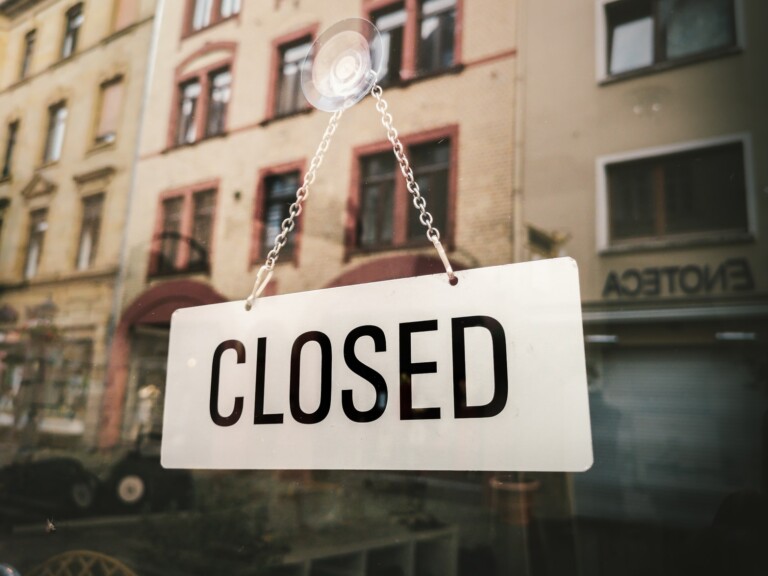
The COVID-19 virus has arrived. For the first time in 11 years, the World Health Organization has declared a pandemic. Multiple times a day we are being told by our governments to stay home, as much as possible. Health Canada has asked all travelers returning to Canada to self-isolate for 14 days regardless of whether the traveler has any symptoms or is returning from a “hot zone”. As of March 16, 2020, the BC government has banned all gatherings of 50 or more people. It is anticipated that these measures (and likely further restrictions to come) will last for weeks and potentially months. This will, of course, have a significant impact on individuals living in strata corporations.
Strata corporations are multi-dwelling buildings, with numerous people on a daily basis coming in and out of the building, touching elevator buttons, front entrance and stairway door handles, and amenity room equipment, which can expose residents, employees, and visitors in the building to the virus. The latest information about COVID-19 can be found at the BC Centre for Disease Control.
COVID 19 and Strata Corporations’ Residents
Section 72 of the Strata Property Act (“SPA”) makes a strata corporation responsible for the repair and maintenance of common property and common assets. Strata corporations should take steps to limit or prevent the risk of spreading the virus in its community. While a strata corporation and its residents cannot force another resident to self-isolate or self-quarantine, there are a number of measures that can be taken to reduce the risk of transmission. CHOA has published a useful bulletin (Bulletin 600-014) on steps that can be taken. In addition, a strata corporation may want to consider shutting down the amenity rooms and enclosed recreational facilities. Strata corporations should take reasonable steps to ensure that the building is safe for those who reside and enter it.
COVID 19 and Strata Corporations’ Employees and Contractors
In addition to residents, the strata corporation may have employees and contractors working on site. In Ontario, a condo’s onsite security guard tested positive for COVID-19. The building took steps, including notifying owners, performing disinfecting operation throughout the building using a professional emergency response contractor to handle the disinfection of the affected areas in the building and increased cleaning operations in the common areas, including elevators, lobbies, offices, laundry and party rooms.
Strata corporations who have employees have legal obligations to ensure the health and safety of their workplace under the Workers Compensation Act and the Occupational Health and Safety Regulation. These obligations include taking reasonable steps to protect employees from COVID-19. The strata corporation may need to seek legal advice regarding what steps they need to take when an employee refuses to work or where the strata corporation needs to tell an employee not to come to work. There are a number of rights and obligations for employers and employees to consider, which are set out here.
AGM and SGM’s and Other Meetings
Currently, the government has recommended against gatherings of 50 or more persons. This may mean that a strata corporation cannot hold a general or information meeting in the usual way, particularly for larger strata corporations. Business will not be as usual. Strata corporations should not insist on holding general meetings due to the risk of spread, particularly to vulnerable members of our community. If the strata corporation has to hold the general meeting (there should be very few circumstances where the meeting should proceed at this point), consider the following:
1. Electronic attendance at meeting:
The standard bylaws do not allow for electronic meetings. Some strata corporations have adopted bylaws, which allow for electronic attendance (review your bylaws to determine if this is allowed). If a strata corporation does not have a bylaw allowing for electronic attendance, it remains open for challenge (likely in the CRT) if a meeting proceeds by electronic attendance without a bylaw. Given the circumstances, having a meeting via electronic attendance may be found to be in technical non-compliance of the SPA, but if necessary business needs to occur and the meeting proceeds in a fair manner, doing so is likely to be found reasonable in the circumstances.
2. Written waiver and consent resolution:
If the meeting is not contentious, but approvals are required (and the complex is small (ie. under 30 strata lots), then every owner (including co-owners) can sign a document that waives the requirement to hold a meeting and consent to the resolutions at the resolutions at the meeting. Because this requires everyone’s participation and unanimity, it is hard to achieve but possible for smaller complexes. Samples of what these waiver and consents resolutions that would have been proposed at the meeting.
3. Hold the meeting:
The meeting can be held at a venue that can accommodate for social distancing, which should be enforced at the meeting. The meeting must have no more than 50 people in attendance. If possible and if you need to proceed with the meeting, it should be moved outdoors. To assist in keeping attendance very low, the council can write to the owners setting out that all owners can send their proxy to one person (ie. a specific council member, for example). The signed proxies should be scanned or photographed and sent to that person. The person holding all the proxies then attends the meeting, and votes on all of the resolutions. Further details on a “restricted proxy” meeting can be found on CHOA’s bulletin. A sample of a restricted proxy form can be found here.
With any of the above options the strata council should notify the owners as to what option they are taking to proceed or not proceed with the general or information meeting. Consider getting legal advice before proceeding with or deciding not to hold the general meeting.
If the meeting does need to proceed, and an infected or sick person comes to an annual or special general meeting or a council meeting, the strata council will have to decide whether to proceed or to shut down the meeting for the safety of all. That said, care should also be taken not to accuse a person of having COVID-19 without proper confirmation. At this point, it would be sufficient to terminate the meeting if someone is coughing or appears ill and refuses to leave.
Ongoing CRT Disputes
If you have an ongoing CRT dispute, the CRT has released its response plan, which can be found here. If the strata council has to make any decisions during the CRT dispute and does not have a bylaw allowing meetings by electronic attendance, you may need to request an extension to allow the council to call an in person meeting. If an extension of time is needed due to COVID-19, you can email [email protected] with the reason for your request and your dispute number. In addition, even though the council meeting will be less than 50 people, members should ensure they maintain social distance of 2 metres.
Disclosure and Confirmed COVID-19 Cases
There may be an obligation on the strata corporation to advise residents that there is someone living, visiting or working in the building that has a confirmed case of COVID-19 or is required to self-quarantine. This can be done by sending out and posting a notice in the common areas. The strata corporation must not for privacy reasons disclose the name of the person who has self-reported. Doing so, not only is a breach of privacy, but may prevent others from reporting in fear of being ostracized.
What Should Strata Corporations Do?
As noted above, CHOA has a comprehensive bulletin, which sets out what steps a strata corporation can take. We suggest that you review it and implement those recommendations to assist in combating the spread of COVID-19 and keeping the community as safe as possible.
Please contact any of the Strata Property Group lawyers at Clark Wilson LLP for further information.




